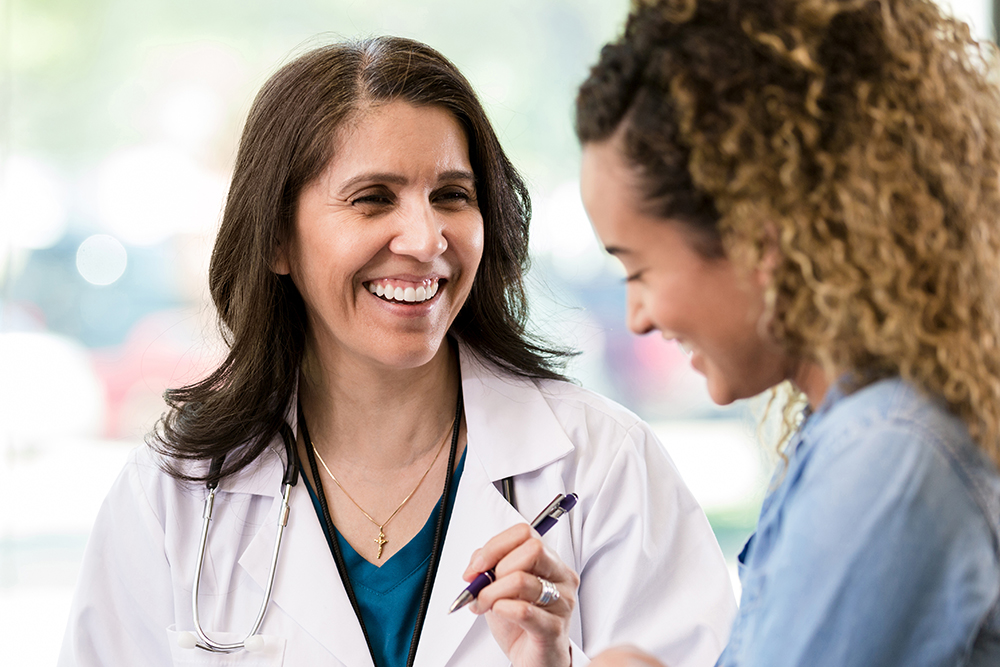
- Details
- By The Leukemia & Lymphoma Society
Earlier this year it was reported that few Native American tribes had enrolled in clinical trials related to the development of COVID-19 vaccines, citing reasons including concern stemming from unethical issues of the past as well as the fast pace of the studies, which need to be vetted for approval from tribes.
Clinical trials are important because they have resulted in the availability of some of the most effective and safest treatments for many illness and diseases. For example, a treatment proven safe and effective in a cancer clinical trial may be approved by the U.S. Food and Drug Administration (FDA) for use as a standard treatment. Despite the carefully controlled nature of clinical trials, hesitancy to participate remains due to skepticism and misconceptions, especially within certain populations.
“Low awareness, fear and distrust of the medical system, costs and logistical challenges are just some of the reasons why patients don’t seek out clinical trials,” says Gwen Nichols, M.D., Chief Medical Officer at The Leukemia & Lymphoma Society (LLS), a global leader in the fight against blood cancer. “Clinical trials give newly-diagnosed patients access to state-of-the-art therapies and can provide a lifeline to those whose standard-of-care treatment has failed.”
Through its recently launched IMPACT (Influential Medicine Providing Access to Clinical Trials) research grants, LLS aims to improve diversity in clinical trials by promoting better access for underrepresented communities.
Representation is critical in determining how effective treatments may or may not be within specific populations. “To get the full benefit of research, we need clinical trials to reflect the diversity of the U.S. population,” said Dr. Nichols. “And we need to dispel common myths that might prevent patients from considering them, especially within certain populations.
Myth: Clinical Trials are free.
Fact-check: The therapy being studied in the clinical trial is free, but patients enrolled might be responsible for standard-of-care therapy, admission and transportation to hospitals or clinics, and other associated costs. It’s important that patients consult with their doctor about their treatment options and costs before making any commitments.
Myth: Patients enrolled in clinical trials are guinea pigs.
Fact-check: Clinical trials are carefully designed research studies that put the health and safety of patients first. Before patients agree to participate, they are taken through the informed consent process with the ability to gather information, ask questions and have things thoroughly explained. Participation in a clinical trial is voluntary, and patients have the option to leave the study at any time.
Myth: Clinical trials are a last resort and only available to patients who have exhausted all other treatment options.
Fact-check: Clinical trials are open to patients at all stages of their disease and treatment. Those who are eligible and choose to enroll in a clinical trial are joining a team of doctors and patients who share a desire to improve treatment for cancer and other diseases now and in the future.
Myth: Participants in clinical trials might receive placebos without knowing.
Fact-check: Many people are concerned about getting a placebo (an inactive pill, liquid, or powder). Most cancer clinical trials do not use a placebo unless given along with an active drug. If a trial uses a placebo, patients are made aware through informed consent in advance of enrolling in the trial.
Patients should speak with their doctors about what joining a clinical trial means for them and their loved ones. Levels of participation vary by trial. Some might require frequent trips to the hospital, requiring a need for childcare or time off from work. No matter what type of care patients choose, there are many support services available through organizations like LLS, to provide different levels of assistance for patients, caregivers and families.
LLS Clinical Trial Nurse Navigators, registered nurses with expertise in blood cancer, are available to personally assist all blood cancer patients and caregivers throughout the entire clinical-trial process. For information, patients can contact an LLS Information Specialist at (800) 955-4572, via live chat or email.
Help us defend tribal sovereignty.
At Native News Online, our mission is rooted in telling the stories that strengthen sovereignty and uplift Indigenous voices — not just at year’s end, but every single day.
Because of your generosity last year, we were able to keep our reporters on the ground in tribal communities, at national gatherings and in the halls of Congress — covering the issues that matter most to Indian Country: sovereignty, culture, education, health and economic opportunity.
That support sustained us through a tough year in 2025. Now, as we look to the year ahead, we need your help right now to ensure warrior journalism remains strong — reporting that defends tribal sovereignty, amplifies Native truth, and holds power accountable.
 The stakes couldn't be higher. Your support keeps Native voices heard, Native stories told and Native sovereignty defended.
The stakes couldn't be higher. Your support keeps Native voices heard, Native stories told and Native sovereignty defended.
Stand with Warrior Journalism today.
Levi Rickert (Potawatomi), Editor & Publisher
